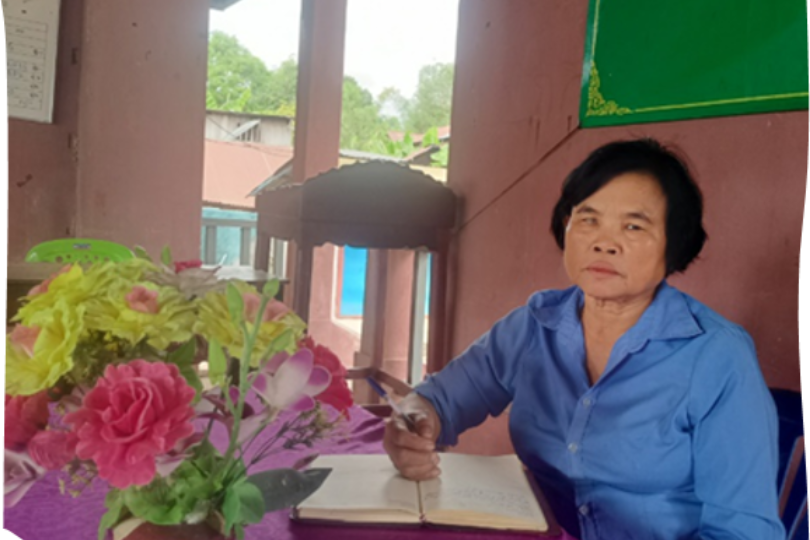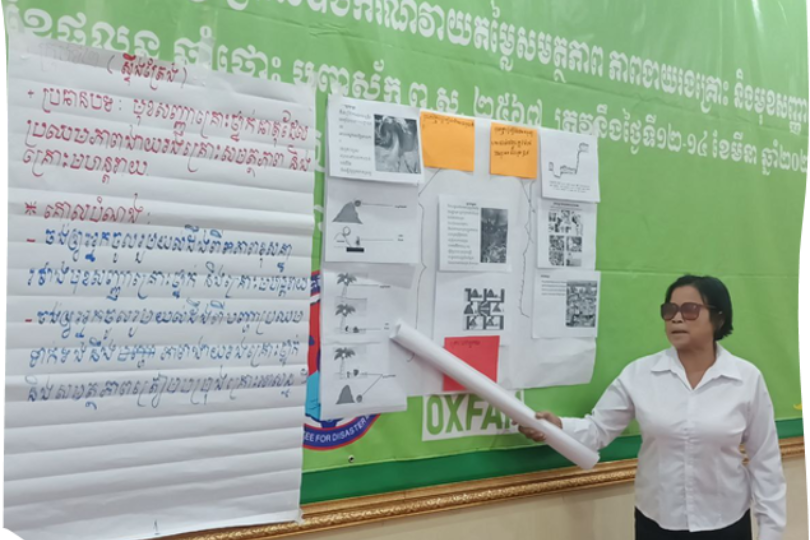Koh Sneng commune, located along the Mekong River in Stung Treng province, frequently faces the devastating impacts of climate change—floods, storms, and droughts have become part of daily life.
In recent years, these disasters have disrupted thousands of livelihoods, particularly affecting women, whose voices often go unheard in decision-making processes.
Ms. Na Osa, 62, the first deputy of Koh Sneng commune council, is one of the few women in leadership striving to change that.
Despite holding a position as the commune’s disaster management focal point, she initially admitted, “Even now, I’m not clear what climate change truly means.”
Supported by My Village Organization (MVi) and Oxfam, Ms. Na Osa participated in a series of capacity-building workshops focused on disaster management, vulnerability risk assessment (VRA), and early warning systems (App 1294).
Equipped with new knowledge and tools, she actively engaged in community planning sessions, contributing to discussions that identified local climate challenges and adaptive responses.
Her involvement became instrumental in shifting local governance toward more inclusive, climate-informed decision-making. Ms. Na Osa’s transformation—from uncertainty to action—motivated others, especially women and youth, to join climate planning efforts and steward the commune’s natural resources more responsibly.
She passionately encourages community participation: “Even if some jobs don’t bring income, we must take ownership and care for our resources to reduce disaster risks.”
Today, her leadership symbolizes the growing recognition of women’s roles in climate resilience. By bridging community knowledge and institutional processes, Ms. Na Osa is helping build a more informed, adaptive, and united Koh Sneng—one that recognizes inclusion as essential to sustainability.


